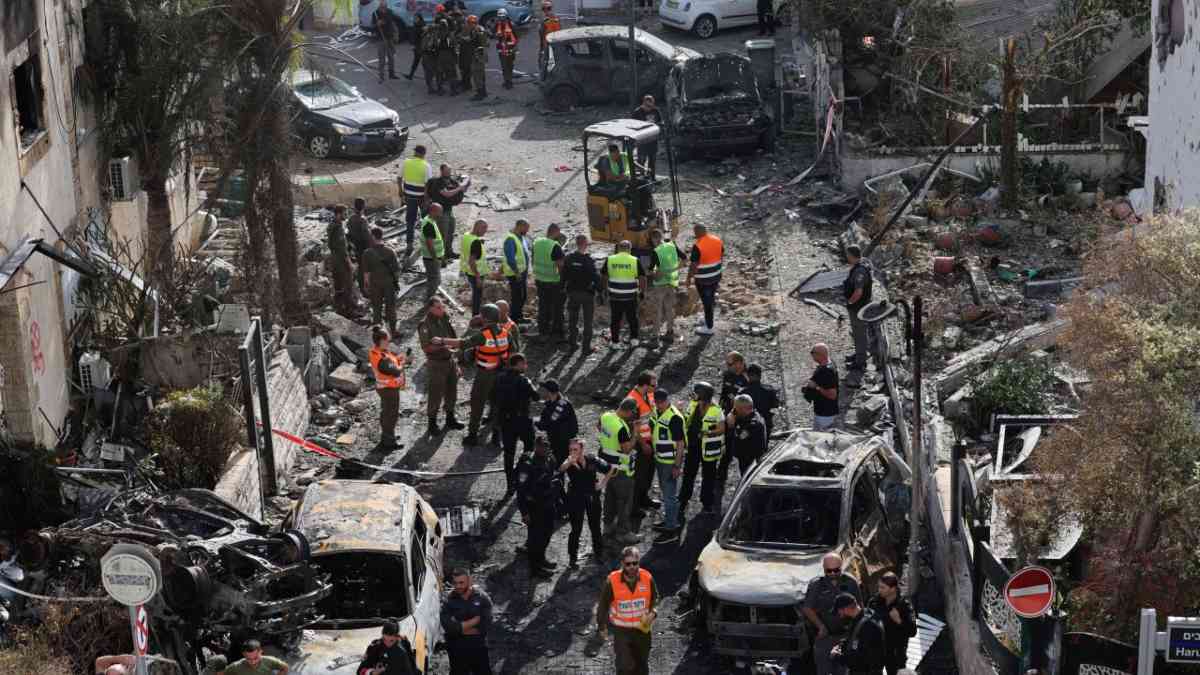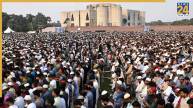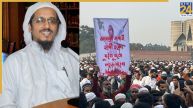The Israeli Defense Forces (IDF) announced they will continue their military strikes on Lebanon in response to recent rocket attacks by Hezbollah targeting northern Israeli cities. This escalation comes as tensions rise following the October 7 Hamas attacks on Israel, which have significantly heightened security concerns in the region. The IDF’s ongoing operations aim to protect Israeli citizens and apply consistent pressure on Hezbollah.
Israel Prepares To Act Against Iran
Israeli officials are warming up for major payback against Iran. It follows French President Emmanuel Macron’s call for an international arms embargo on Israel, targeted this time, particularly on weapons being used in Gaza. “The response is going to be very significant and serious,” Israeli officials said, into well-prolonged mutual tension between the two countries.
The Israeli Army Chief, Lieutenant General Herzi Halevi, revealed that the military pressure exerted on Hezbollah in Lebanon would not be alleviated. “We must continue to exert pressure on Hezbollah and continuously damage the enemy, without concessions and letup,” he said.
Iran Remains In Threat
President Isaac Herzog said this week that Iran still is a continued threat to Israel, particularly with the anniversary of the October 7 attacks looming. “In many ways, we are still living the aftermath of October 7. It is the ongoing threat from Iran and its terror groups seeking to destroy our nation.”.
In preparation for action against the Iranian missile attacks that were launched in the last days, Israeli Defense Forces (IDF) have increased their airstrikes in Lebanon. For the first time, they have also targeted the southern suburb of Beirut and the Palestinian refugee camp in northern Lebanon.
Also Read: Lebanon Death Toll Exceeds 2,000 Amid Growing Israel-Hezbollah Tensions
Casualties From Recent Attacks
Israeli warplanes struck the Beddawi refugee camp north of Tripoli, killing a Hamas military official and three members of his family. It was the first such raid on the north since fighting began, and marked a shift in Israeli operations, which have for the most part been focused on southern Lebanon and Beirut since hostilities commenced.
At least six people were killed in Israeli airstrikes overnight, Lebanon’s National News Agency reported. Israel has been conducting intensive bombing campaigns in Lebanon and has deployed troops across the border after almost a year of fighting with Hezbollah.
Evacuations During Continuing Warfighting
As violence escalates, Beijing has evacuated 215 Chinese citizens from Lebanon due to the continuous bombardments that have culminated in over 1,100 deaths. Canadian Prime Minister Justin Trudeau also urged all the remaining Canadian citizens to leave the country, claiming over 1,000 already boarded special flights arranged by the government.
“We invite all Canadians to take seats on these airplanes and to leave Lebanon while one can,” Trudeau said. The Canadian government is trying to evacuate another 2,500 citizens, with further flight planned in the coming days.
Military Pressure Continues
President Herzog admitted that the attacks conducted on October 7 left lifelong scars to be remembered as a remembrance day for the killing of 1,205 people of whom are mostly civilians. Battles are still raging, and people are still displaced, with hostages still being held in Gaza. According to Herzog, “Our wounds still cannot fully heal because they are ongoing. Because hostages are still being tortured, executed, and dying in captivity.”.
Protests and acts of remembrance will take place in Israel at nearly the one-year mark since the Hamas attacks, with over 40,825 reported dead in Gaza, most of them civilians, health officials from the region report since Israel’s military response began.













